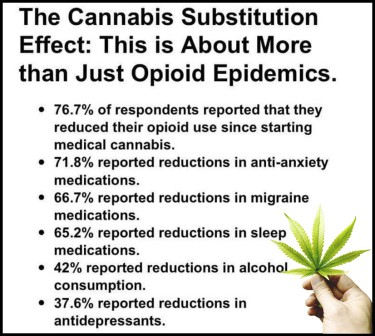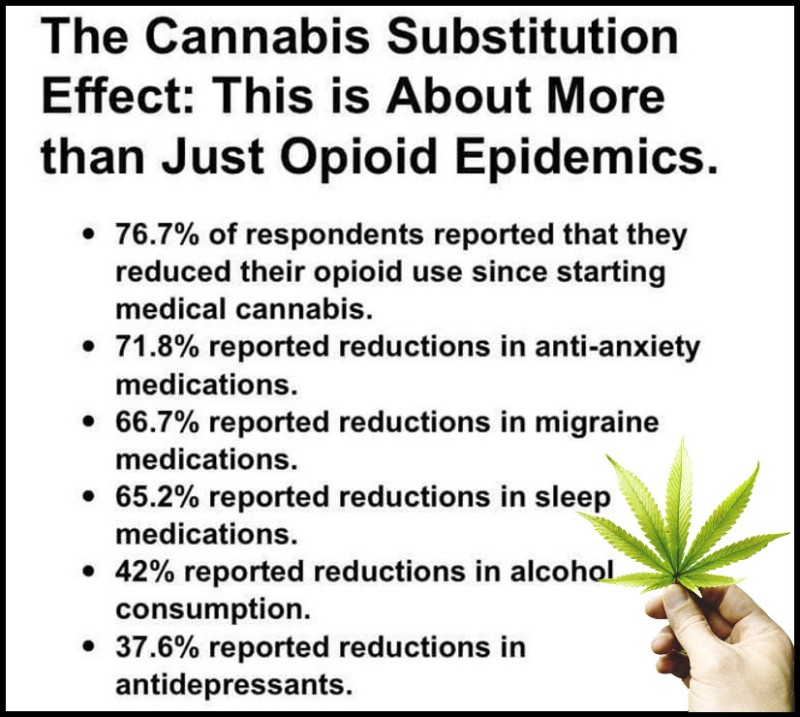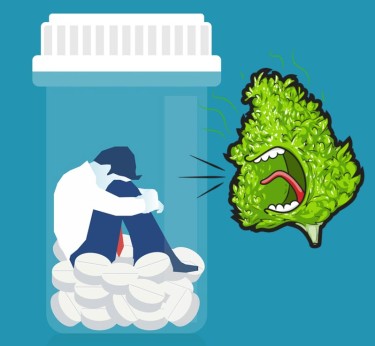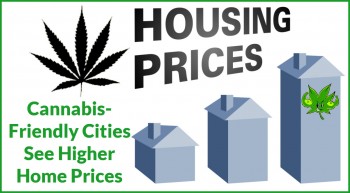Don’t be fooled - Pharma isn’t very keen on cannabis
These days, I don’t really get into arguments when it comes to drug consumption, legalizing weed, etc. For the most part, the people I surround myself with are “drug-friendly” or “drug-tolerant” and understand that as an adult, I understand how to conduct myself under a wide range of substances.
In fact, apart from the occasional “buzz”, most people don’t ever get to see me “trip balls” as I have very peculiar protocols to safe and effective consumption.
For me, consuming LSD or Psilocybin isn’t about recreation - it’s about exploration and discovering the width and depth of my being.
However, “drugs” is one thing and “cannabis” is an entirely separate thing - despite it also being a “drug”.
The reason why cannabis is “different” is because it is relatively easy to cultivate, it isn’t “as intense” as other drugs and treats a wide range of ailments of humankind.
This is why Pharma has been so adamant in slowing down the legalization of cannabis. This is why “Schizophrenia studies” magically appear out of the blue with shoddy evidence and the infamous “need more research” clause to justify it’s “science”.
But under deeper scrutiny, you find that the results are often not replicable and the methods often “miss” many other potential triggers for psychotic episodes.
Now, some of you might say - “this dude is talking some conspiracy theory,” and while I do have a Phd in Conspiracies and assorted whacky shit - there is empirical evidence to show you why Pharma isn’t a fan of cannabis.
A little birdy told me…

While the link on the image is a dead-link [I tried to track it down]. The truth is that cannabis has become a substitute for many people’s “pills”. This is hurting Pharma’s bottom line. They have had the world by the balls for decades.
The Controlled Substance Act of 1971, a landmark legislation in the United States, has often been associated with the pharmaceutical industry.
This act, signed into law by President Richard Nixon, established a framework for classifying and regulating drugs based on their potential for abuse and medical usefulness. While the act aimed to control drug abuse and protect public health, critics argue that it inadvertently created a favorable environment for Big Pharma.
One of the key aspects of the Controlled Substance Act was the authority it bestowed upon the pharmaceutical industry to control, manufacture, and conduct research on drugs. This power allowed pharmaceutical companies to dominate the drug market, leading to a virtual monopoly on drug research, distribution, and production. Through extensive lobbying efforts, the pharmaceutical industry played a significant role in shaping the legislation to its advantage.
By positioning themselves as the gatekeepers of drug development and distribution, pharmaceutical companies gained immense influence and control over the healthcare system. This influence translated into substantial profits and market dominance, as they became the primary providers of medication and treatment options.
Critics argue that the Controlled Substance Act effectively turned the United States government into enforcers for the pharmaceutical industry. The legislation provided a legal framework that consolidated the industry's power and restricted competition from alternative medicines and treatments. This monopolistic control not only limited patient choices but also contributed to the rising costs of healthcare and prescription drugs.
While the “alleged” intention behind the Controlled Substance Act was to regulate drugs and protect public health, its implementation and subsequent influence of Big Pharma have sparked debates about the extent of corporate influence and the prioritization of profits over individual well-being.
It has underscored the need for a critical examination of the relationship between pharmaceutical companies, policymakers, and the healthcare system.
By the numbers…
While the image reflects a survey, let’s assume for a moment that those numbers in the image translate to the wider marketplace. What if 76.6% of the population of the US switched to cannabis for pain management? How much money would Pharma lose if 76.6% of consumers stopped using their opioids?
I posed this question to Google Bard because, why not…and this is what it spewed out:
According to a 2019 report by the Centers for Disease Control and Prevention (CDC), the total retail sales of prescription opioids in the United States was $26.8 billion. If 76.6% of consumers stopped using their opioids, the total retail sales of prescription opioids would be reduced to $6.5 billion. This would represent a loss of $20.3 billion for the pharmaceutical industry.
It is important to note that this is just a rough estimate, as the actual amount of money that the pharmaceutical industry would lose would depend on a number of factors, such as the specific opioids that consumers stopped using and the prices of those opioids. However, the estimate does provide a sense of the magnitude of the financial losses that the pharmaceutical industry would face if a significant number of consumers stopped using opioids.
It is also worth noting that the loss of revenue from opioid sales would not be the only financial impact of a decline in opioid use. The pharmaceutical industry would also face costs associated with the treatment of opioid addiction, as well as the costs of lawsuits filed by individuals who have been harmed by opioids.
Overall, the financial impact of a decline in opioid use would be significant for the pharmaceutical industry. The industry would lose revenue from opioid sales, and it would also face costs associated with the treatment of opioid addiction and lawsuits filed by individuals who have been harmed by opioids. - Google Bard, Artificial Intelligence
**Yes, I quoted a bot…they might remember my kind acts in the robot uprising.
According to Bard, “If 71% of all users of anxiety medicine stopped using it, the total retail sales of prescription anxiety medications would be reduced to $5.2 billion. This would represent a loss of $12.3 billion for the pharmaceutical industry.”
While this might be speculation by an advanced artificial intelligence, it does indicate the potential loss of revenue to an industry that has had the world by the balls for decades.
What would happen if people could simply grow their own cannabis at home to treat a myriad of diseases? Would we begin to see the decline of the pharma stronghold? Siphoning money through a rigged healthcare system - using public money to fund their parasitic practices.
The need to decentralize drugs…
Monopolies, by their very nature, tend to be detrimental to various aspects of society. Whether it's the consumer, innovation, or the economy, the consequences of a monopoly can be far-reaching and negative. This holds true for the pharmaceutical industry, where the concentration of power has led to significant challenges and limitations.
One of the main downsides of monopolies is the negative impact on consumers. With limited competition, monopolistic companies can control prices, leading to inflated costs for essential medications. This restricts access to affordable healthcare and puts a burden on individuals and families. Moreover, monopolies often stifle innovation and discourage the development of alternative treatments or approaches. This lack of competition hinders progress, leaving consumers with limited choices and potentially inferior products.
In contrast, open-source projects provide a compelling example of the benefits of decentralization and collaboration. Open-source software, such as Linux and the Android operating system, has flourished due to its collaborative nature. By allowing developers around the world to contribute, share ideas, and build upon existing work, open-source projects often outperform closed projects in terms of innovation, reliability, and security. The success of these projects is rooted in the principles of open access and the free flow of information.
Applying this concept to the pharmaceutical industry, decentralizing drugs, and embracing open-source research could lead to a paradigm shift. By removing the current pharmaceutical monopoly and dismantling barriers to entry, a more diverse and inclusive landscape could emerge. This would foster innovation, promote competition, and ultimately benefit the consumer.
To decentralize drugs effectively, it would be crucial to establish new rules and regulations that prioritize patient well-being, safety, and affordability. This would require a comprehensive reevaluation of drug policies and a shift away from the Controlled Substance Act (CSA) framework. A call to nullify the CSA and adopt alternative approaches that promote decentralization and open research could be a powerful step toward transforming the pharmaceutical industry.
However, it's important to recognize that such changes would require concerted efforts from policymakers, healthcare professionals, researchers, and the public. Advocacy for decentralization, open research, and dismantling monopolistic structures is essential. By actively supporting decentralized approaches, individuals can contribute to a more equitable, innovative, and accessible healthcare system.
I’m not naive. I understand that what I’m talking about is probably not going to happen any time soon if ever. However, my hope is to sow these ideas into the general mass consciousness. Hopefully, enough of these little seeds take root for a revolution to blossom throughout time.
I hope this information finds you well…keep on smoking dear friends!
OPIOID USE WITH LEGAL CANNABIS, READ ON...
80% OF OPIOID USERS STOP OR DROP LEVELS OF OPIOIDS AFTER CANNABIS!






